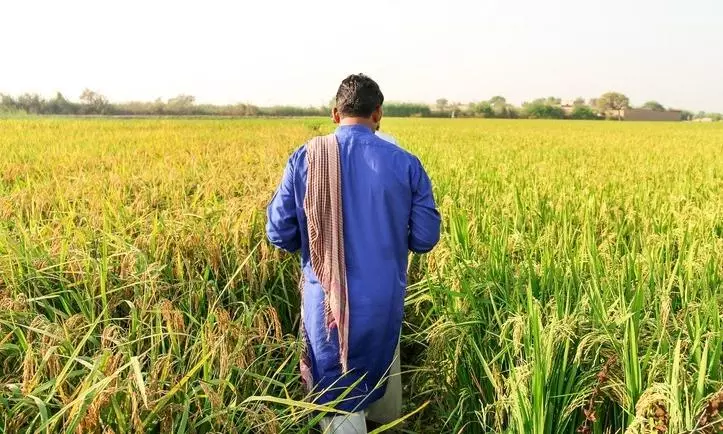
India accuses Pakistan of Basmati rice piracy, plans to move global fora
India may file complaint against Pakistan under TRIPS pact within WIPO; efforts also on to stop countries from importing 'smuggled' Basmati varieties from Pak

The Indian government is preparing a multi-pronged approach against Pakistan for allegedly growing and exporting 'pirated' versions of Basmati rice that have been cultivated in India for centuries.
India plans to file a complaint against Pakistan under the TRIPS (Trade-Related Aspects of Intellectual Property Rights) Agreement with the World Intellectual Property Organisation (WIPO).
Efforts will be made to ban the cultivation of these Basmati varieties in Pakistan and to stop countries importing such rice from Islamabad at international fora.
Also read | Basmati war: India loses ground as Australia, NZ note it as Pak product
Indian seeds in Pakistan
Indian agricultural scientists have developed a number of advanced Basmati varieties over the years. It is suspected that several of these have been smuggled to Pakistan, which cultivates and exports them on a large scale.
Seeds of key varieties such as Pusa Basmati 1509, Pusa Basmati 1121, Pusa Basmati 1847 and Pusa Basmati 1885 have been illegally acquired, the officials say.
These varieties were developed at the Indian Agricultural Research Institute (IARI) in New Delhi. The IARI is commonly referred to as 'Pusa Institute' because it was originally established in the village of Pusa in north Bihar in 1905.
DNA testing of Basmati
The Agricultural and Processed Food Products Export Development Authority (APEDA) tested samples of these Basmati varieties in leading international laboratories, which confirmed their Indian origin.
Also read | Basmati GI tag: Odds stacked against Madhya Pradesh amid India-Pak row
Several such tests have been conducted in laboratories across India and the EU.
DNA testing by a reputed European lab allegedly confirmed that Pakistan has modified the titles of Indian Basmati varieties and is cultivating them illegally.
Globally, about a dozen laboratories follow a standardised protocol for Basmati testing.
Pakistani exports hit India
The produce is exported extensively, in violation of international trade norms. There are no adequate legal frameworks to regulate or act against such practices.
A single rice sample was sent to all the participating labs, with shared data and coding. These tests revealed the piracy of Indian Basmati varieties in Pakistan, it is said.
According to scientists at Pusa, the moment a new rice variety is released in India, it somehow finds its way into Pakistan. One official said: “Seed smuggling has become a serious issue.”
Pakistani farmers
The agricultural research infrastructure in Pakistan is quite underdeveloped, forcing Pakistani farmers to rely largely on illegally imported seeds, say Indian officials. Thanks to the smuggled seeds, Pakistani exporters directly compete with their Indian counterparts, they add.
Watch | A silent rice war: India, Pakistan battle it out to capture global market
They further say all data related to the Basmati varieties cultivated in Pakistan has been secured by the Indian government.
India exports Basmati worth nearly Rs 50,000 crore annually. Basmati rice holds a premium position in global markets and commands nearly double the price of regular rice varieties.
India-Pakistan clash
There’s fierce competition between India and Pakistan in markets such as Europe, the US, Australia, New Zealand and the Middle East.
While India has continuously enhanced its productivity and quality through rigorous research, Pakistan has not invested similarly, says Indian officials.
Also read | This rice variety could tackle diabetes epidemic in South India
In addition to older Indian varieties, Pakistan is now also illegally cultivating newly released ones such as Pusa Basmati 1847 and Pusa Basmati 1885, they say.
This issue came to light about a year-and-a-half ago, prompting Indian agencies to take action.
With DNA testing now confirming Pakistan's cultivation of Indian varieties, it strengthens the case for imposing restrictions on such exports.
Breaching laws
It’s likely that India will intensify its efforts to file formal complaints and seek redress at international platforms.
Varieties developed in India are notified under the Indian Seeds Act of 1966 and the Protection of Plant Varieties and Farmers’ Rights Act of 2001. These laws grant Indian farmers exclusive rights to grow these seeds.
Despite this, select Indian Basmati varieties are being cultivated in Pakistan.
(This article was originally published in The Federal Desh.)

